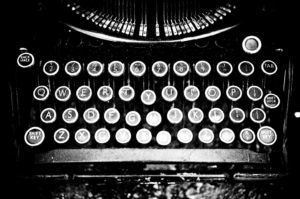Writing a Fictionalized Memoir, Part 1
An author friend of mine, Laurie Hanan, got me a gig speaking at a local library recently. Because my book Angel Hero is a fictionalized memoir, the librarian asked me to talk about writing one. I worked long and hard on my 15-20 minute speech before I came up with this version, which I’ll post over the course of four posts.

Writing a Fictionalized Memoir, Part 1
In this age of “reality” TV, there’s a huge audience for shared real-life experience. Readers are hungry for true stories. We want to listen to a voice that says, “I really did this, and this is what I learned.” A voice speaking the truth and touching our hearts.
I hope to be such a voice for you today as I tell you a little bit about the grisly crime I survived and the love I experienced, as told in this second edition of my fictionalized memoir Angel Hero. It’s a memoir because the story is true. I call it fictionalized because the names, dates, and places have been changed to protect the innocent.
Remember how angrily readers and Oprah Winfrey reacted to writer James Frey, who passed off A Million Little Pieces as a memoir rather than a novel in 2006? Frey broke a contract with the reader, that if you call your book a memoir, you don’t make up new events, or change the old ones, or embellish too much, or invent dialogue. Since he fictionalized events and dialogue, he should have called his book a novel based on a true story.
Is anyone here writing a memoir? If you are, and you want to get it published for a larger audience than your family and friends, be careful not to write anything false or damaging about anyone. If you do, even if you’ve disguised who they are, you could be sued for libel, or even thrown in jail.
If you’re seeking a publisher, you’ll want to tell a page-turning story. You’ll need tension, conflict, and a story arc to drive the action. You’ll need a story people will want to read, perhaps something like, “A timid dispatcher who’s been denied love throughout her lifetime finds the courage to stand up to a murderer when she finds true love.” At least, I hope people will want to read this, because this is the story arc of my book.
In Chapter 1, I write that I transferred from the Army Fire Department to Whaler Air Force Fire Department. People ask me, “Why didn’t you call it by its real name instead of Whaler?” My answer: “For the first 29 years of writing my book, I changed the names and descriptions of people, and the dates, and the names of places, and called the book a novel inspired by a true story. I changed these details because I agreed with my writers group and friends who said, since the gunman still roamed the streets of Honolulu, it was dangerous to use real names and dates lest he find out what I’d written about him.”
Last month, after discovering the gunman had passed away, I changed the genre from a novel to a fictionalized memoir. I don’t need to pretend this is a made-up story anymore.